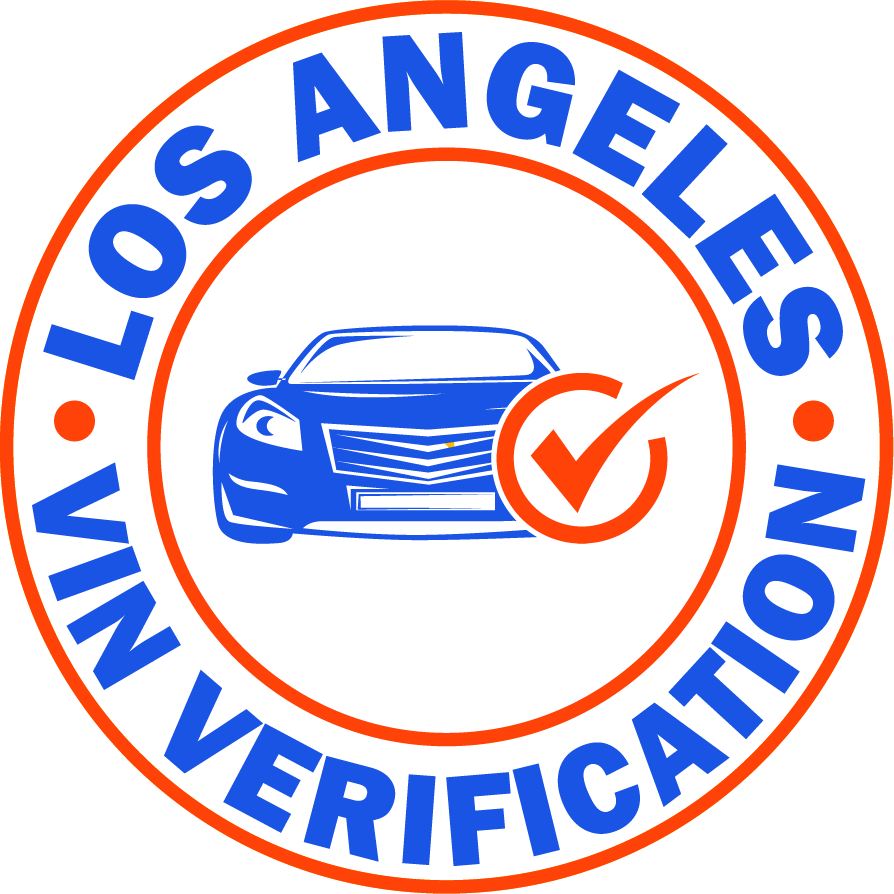In Los Angeles, a hub for automobile aficionados, the importance of VIN verification extends beyond mere regulatory compliance; it serves as a safeguard for the authenticity and legality of a vehicle. This process, critical for both the seasoned collector and the casual enthusiast, involves cross-referencing the Vehicle Identification Number with Department of Motor Vehicle records to ensure accuracy in ownership and vehicle history. As we explore the nuances of VIN verification, consider the implications of overlooked discrepancies which could pose legal and financial challenges. Moving forward, let us examine how such oversights can be averted, securing peace of mind for every car enthusiast.
Understanding VIN Verification
What exactly is VIN verification, and why is it crucial for vehicle registration in California?
VIN verification is a procedural safeguard implemented by the California DMV to ensure that the vehicle's identification number matches official DMV records. This process is indispensable for registering vehicles from out of state, underscoring its significance in maintaining legal and rightful ownership.
The VIN verification process entails a rigorous physical inspection of the vehicle. This scrutiny is not merely bureaucratic; it serves as a frontline defense against vehicle fraud and theft, confirming the vehicle's existence and authenticity. During the inspection, specific details such as the VIN's placement, the vehicle's make, model, and the odometer reading are meticulously checked and recorded on a REG 31 form.
For car enthusiasts and others who cherish their freedom to own and operate their vehicles without legal encumbrances, understanding and cooperating with the VIN verification process is essential. It ensures that their vehicles are recognized as compliant and legally operable under California law.
The procedure bolsters confidence in the legitimacy of the vehicle ownership and operation, providing peace of mind to vehicle owners and potential buyers alike.
Eligibility for Vehicle Verification
To ensure a smooth VIN verification process, it is important to first determine if your vehicle meets the necessary eligibility requirements in Los Angeles. Among the primary criteria, your vehicle must be operable, meaning it should be able to start and be accessible for inspection. This ensures that the VIN verifications can be conducted efficiently, respecting the time and freedom of movement for all involved.
A crucial component for post-1970 vehicles is the presence of an intact Federal Certification Label. This label confirms the vehicle's compliance with national safety standards, which is a mandatory aspect of the verification process. Vehicles lacking this label are deemed ineligible, underscoring its significance.
Additionally, for those with salvaged vehicles, there are extra steps involved. These vehicles often require clearance from local authorities, such as the CHP office, ensuring they meet all necessary criteria before they are deemed roadworthy again. This compliance with local regulations not only facilitates a smoother verification process but also aligns with the broader commitment to safety and regulation adherence within the community.
Required Documents Checklist
Several documents are essential for VIN verification in Los Angeles, including the vehicle title, pink slip, and, if applicable, a bill of sale. These documents collectively establish a clear chain of ownership and confirm the vehicle's legal status, ensuring that your freedom to modify, sell, or use your vehicle remains unimpacted.
The vehicle title is foremost among these, serving as a definitive proof of ownership. It is indispensable during the VIN verification process as it ties you to the vehicle.
Alongside, the pink slip verifies that the vehicle is correctly registered under your name, aligning with state regulations and helping avoid any legal roadblocks that might restrict your usage of the vehicle.
Additionally, for vehicles that have been recently acquired, a bill of sale is required. This document is crucial as it details the transaction between buyer and seller, providing transparency and a backup in disputes.
Moreover, the inspection process necessitates access to the vehicle, thus keys must be present.
Lastly, ensure the Federal Certification Label is intact on your post-1970 vehicle. This label is vital as it confirms the vehicle's compliance with federal safety standards, a prerequisite for completing the verification.
Scheduling Your Appointment
Before you can proceed with VIN verification, it is essential to schedule an appointment with Car Inspectors by calling 818-300-4491, ensuring their availability on your preferred date. Booking your session in advance allows you the freedom to choose a time that seamlessly aligns with your schedule, affirming that the VIN inspection process does not disrupt your daily activities.
When arranging your appointment, it's crucial to have your vehicle title, registration, and other necessary documents ready. This preparation guarantees a smooth verification procedure, reinforcing your right to efficient and hassle-free service.
Remember, your vehicle must be operable and capable of starting, as the inspector will need to access and evaluate the odometer and dashboard readings. This operational requirement ensures that the VIN Inspections are thorough and conform to legal standards.
Please note that vehicles with salvaged titles or those missing Federal Certification Labels are ineligible for verification. Verifying your vehicle's status beforehand allows you to address any issues, ensuring a successful appointment.
Los Angeles Area Coverage
Car enthusiasts across the greater Los Angeles area can access on-location VIN verification services to ensure their vehicles meet state compliance requirements. This expansive coverage includes various neighborhoods and outskirts, providing a convenient solution for verifying the Vehicle Identification Number (VIN) without the need to travel far from home. By catering directly to the local auto clubs and individual collectors, these services offer the freedom to maintain and certify vehicles efficiently.
Quick VIN Verification and other authorized entities, such as the California DMV and AAA, are intricately familiar with local and state regulations. This ensures that every verification process adheres strictly to the necessary guidelines, securing your peace of mind in knowing that your vehicle is not only compliant but also ready for any adventure on the open road.
The requirement that vehicles be operable and have the Federal Certification Label intact further underscores the commitment to quality and legal adherence in the VIN verification process.
Fees and Payment Options
Understanding the fees and payment options for VIN verification services is essential for Los Angeles car enthusiasts looking to ensure their vehicles comply with state regulations.
For those preferring an on-location service, Quick VIN Verification offers a competitive service fee of $45, with an expanded mobile service starting at $97, covering the greater Los Angeles area. This provides a convenient solution for those valuing time and flexibility.
Alternatively, the California Highway Patrol (CHP) provides a no-cost option for VIN verification, although this requires a DMV referral, ensuring that all necessary paperwork is properly arranged beforehand. This route might appeal to those who appreciate a more structured approach to compliance.
Regarding payment methods, there is a broad spectrum available to cater to various preferences. Accepted methods include cash, check, and digital payments through platforms like Zelle and Venmo, as well as traditional credit or debit cards. This variety ensures that every car enthusiast can choose a payment method that best suits their financial handling style.
For AAA members, an added benefit is the inclusion of VIN verification services within their membership, although it's important to note that this does not extend to salvage vehicles. This membership perk aligns well with those who seek extra value from their automotive investments.
Common Verification Issues
Navigating the complexities of VIN verification can be challenging due to several common issues that may arise during the process. One significant concern is VIN mismatches. When the Vehicle Identification Number on a vehicle does not align with that on the title or registration documents, it can cause delays. Such discrepancies must be resolved to confirm the legitimacy of both the vehicle and its ownership records.
Additionally, missing or incomplete paperwork compounds the challenge. Essential documents like the title or bill of sale are indispensable for a successful VIN verification. Without these, the process stalls, leaving vehicle owners in a state of uncertainty. This is particularly cumbersome for those who value their time and wish to expedite legal formalities to enjoy their vehicles freely.
Another pervasive issue is the absence of an intact Federal Certification Label on vehicles manufactured after 1970. This label verifies that the vehicle meets specific safety standards. Its absence can halt the verification process, as compliance with these standards is non-negotiable.
Lastly, salvaged vehicles often present unique hurdles. They require extra documentation to prove they've been adequately restored and are safe for the road. Without this, such vehicles remain unverified, limiting the freedom to operate them legally.
Special Vehicle Considerations
For Los Angeles car enthusiasts, special considerations during VIN verification include operational requirements, such as the necessity for vehicles to start and have readable dash and odometer displays during the inspection. This ensures that the vehicle is not only present but also functioning at a basic level, aligning with the freedom to use the vehicle immediately post-verification.
Post-1970 vehicles are subject to additional scrutiny; they must have an intact Federal Certification Label to complete the VIN verification. This label certifies that the vehicle meets essential safety and environmental standards, a crucial step for maintaining compliance and ensuring the liberty to operate the vehicle on public roads without legal hindrances.
Salvaged vehicles bring a unique challenge in the VIN verification process. These vehicles often require more extensive documentation and sometimes direct coordination with the local California Highway Patrol (CHP) office if there are severe VIN discrepancies or missing paperwork. This step is vital to redefine the vehicle's status legally and restore its identity, thereby securing the owner's freedom to navigate the complexities of vehicle registration.
Vehicles with VIN discrepancies must undergo thorough inspections to synchronize title records with the physical condition of the vehicle, ensuring the accuracy and legality of ownership transfers, and preserving the owner's rights and freedoms.
Contacting VIN Verifiers
To schedule a VIN verification in the greater Los Angeles area, enthusiasts can contact Car Inspectors at 818-300-4491 or set up an appointment through various authorized entities, including the DMV, AAA, or private services like Quick VIN Verification.
Setting an appointment ensures that all necessary preparations are made to handle your vehicle title and other required documentation efficiently.
When contacting VIN verifiers, it's crucial to have your vehicle title, pink slip, bill of sale, registration, and keys ready. These items are essential for verifying the authenticity of your vehicle and streamlining the process.
Each verifying entity, whether it's the California DMV, AAA, or services like Quick VIN Verification, has its specific guidelines and fee structures. It is advisable to inquire about these details beforehand to avoid any surprises and ensure that the verification process aligns with your expectations and needs.
Los Angeles car enthusiasts value their freedom and flexibility, so choosing a VIN verification service that offers convenience and thoroughness is paramount.
Post-Verification Steps
Once your vehicle's VIN has been verified, the next step involves completing and submitting all necessary documentation, such as the REG 31 form, to the DMV for registration or title transfer. This crucial phase ensures that your vehicle is legally recognized and that you maintain the freedom to operate it without legal hindrances. It's important to meticulously fill out the documentation to prevent any future complications.
Should any discrepancies arise during the VIN verification process, it is imperative to address these issues swiftly. Contact a licensed verifier or the DMV directly to resolve any inaccuracies. This proactive approach not only corrects records but also secures your vehicle's compliance with state regulations.
Additionally, keep a copy of the VIN verification form and all related documents. These records are your proof of compliance and may be required for future inspections or if questions arise regarding the vehicle's history or specifications.
For vehicles with a salvaged title, the path to re-registration includes extra steps. You must provide proof of repairs and meet all required safety inspections to ensure the vehicle is roadworthy.
Being attentive to these post-verification steps reinforces your rights and freedom as a vehicle owner, ensuring smooth and uninterrupted enjoyment of your vehicle.

